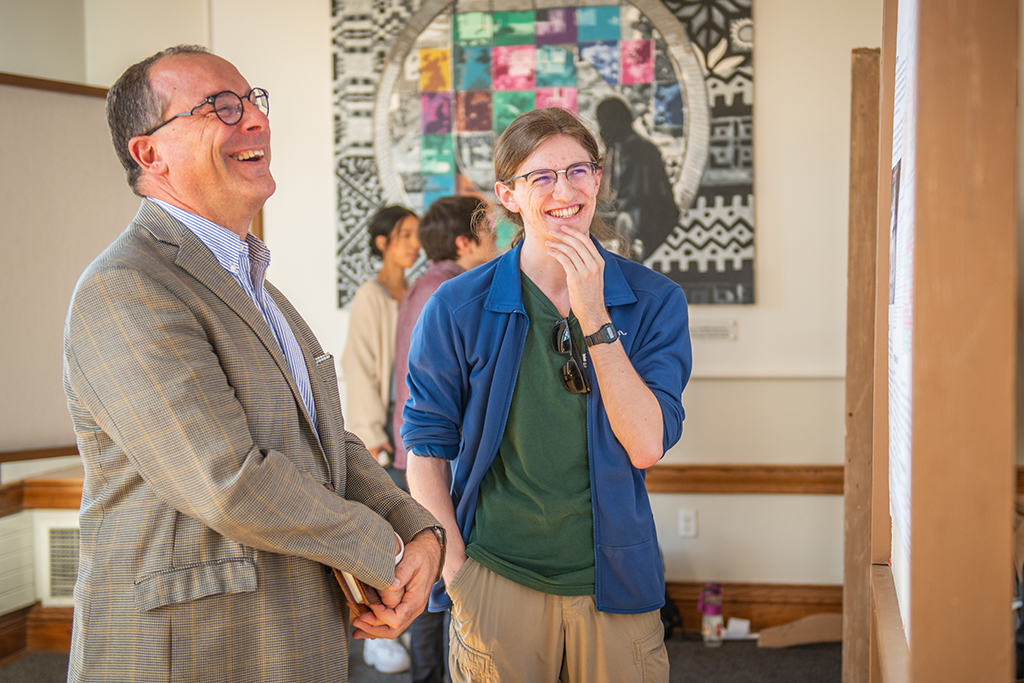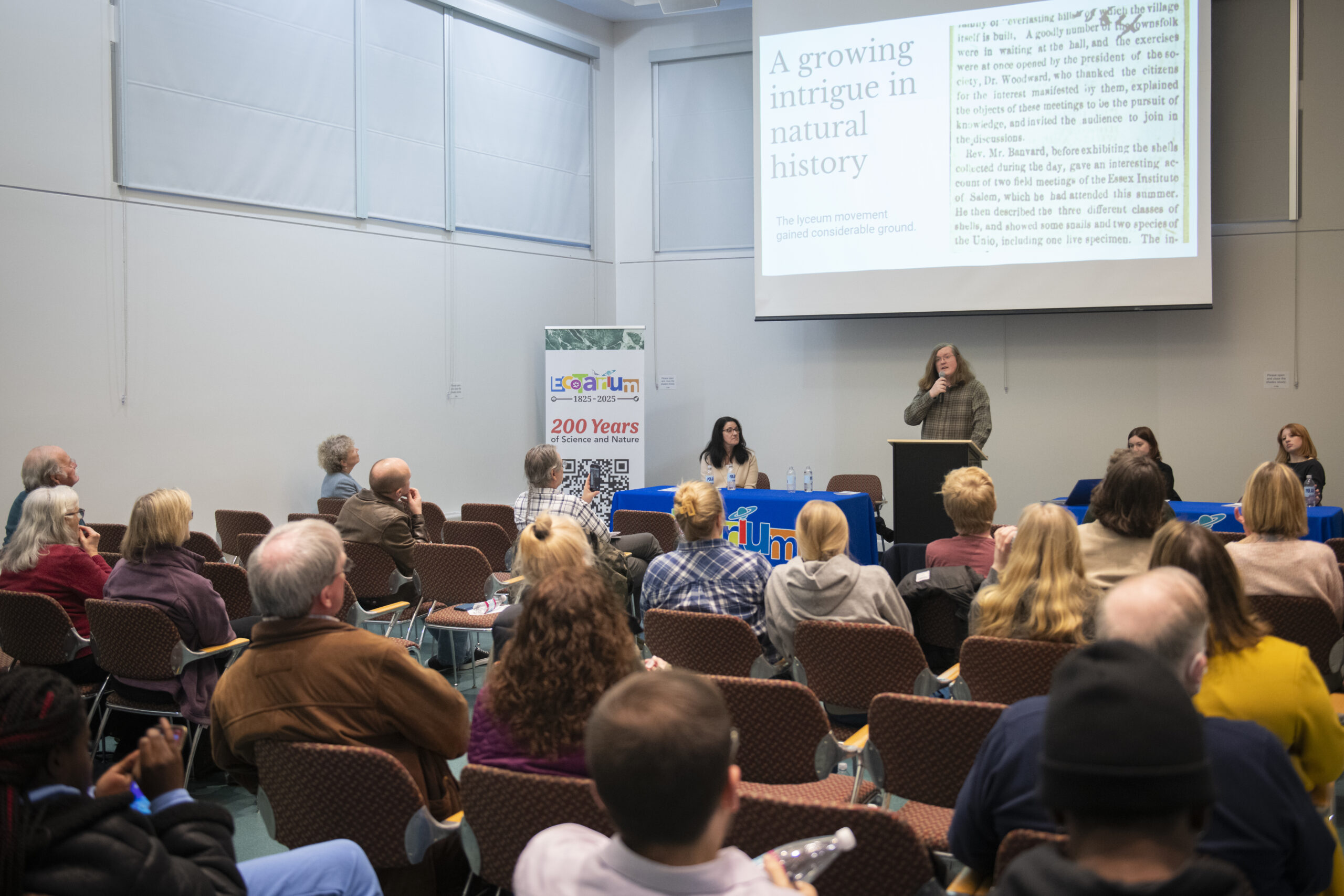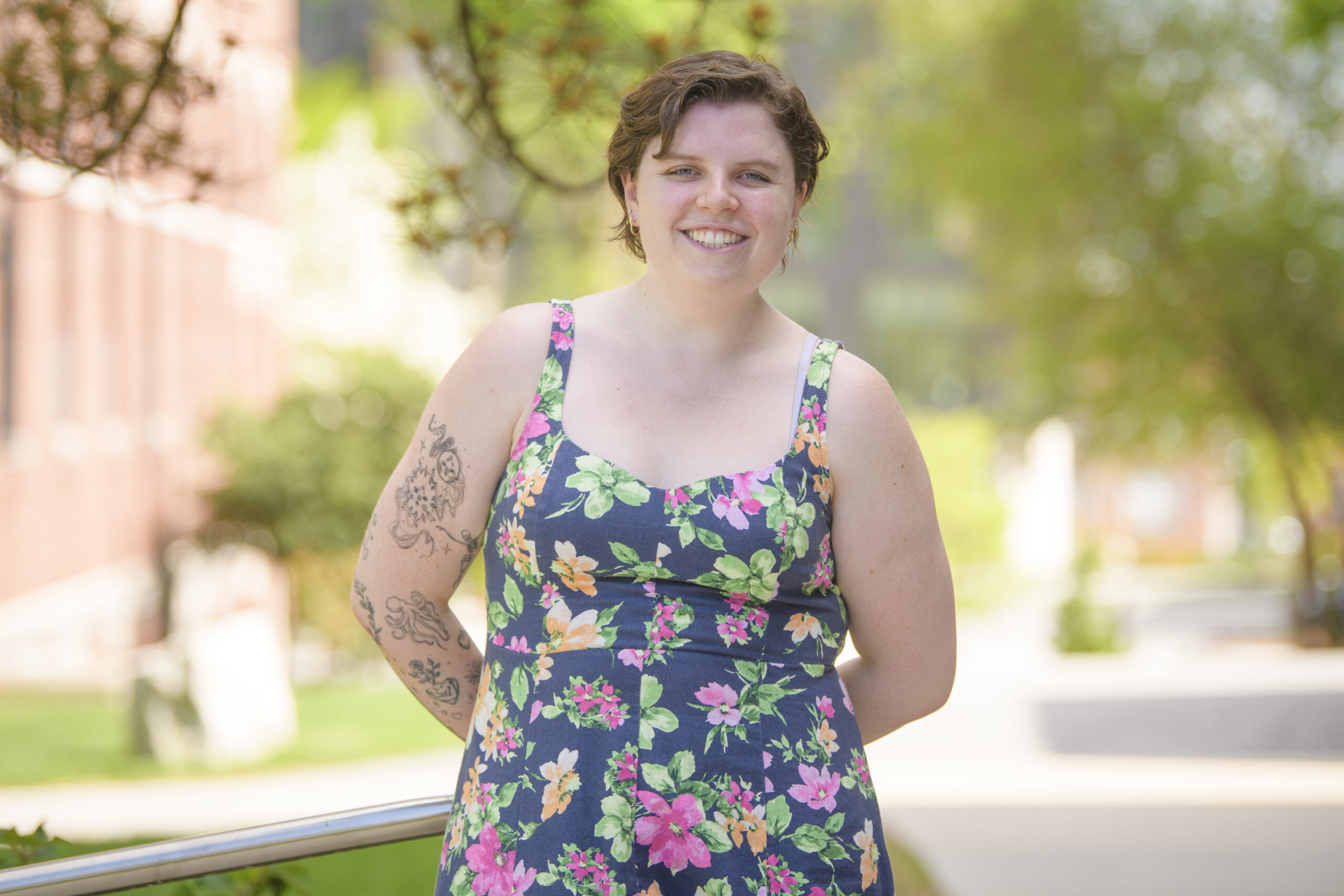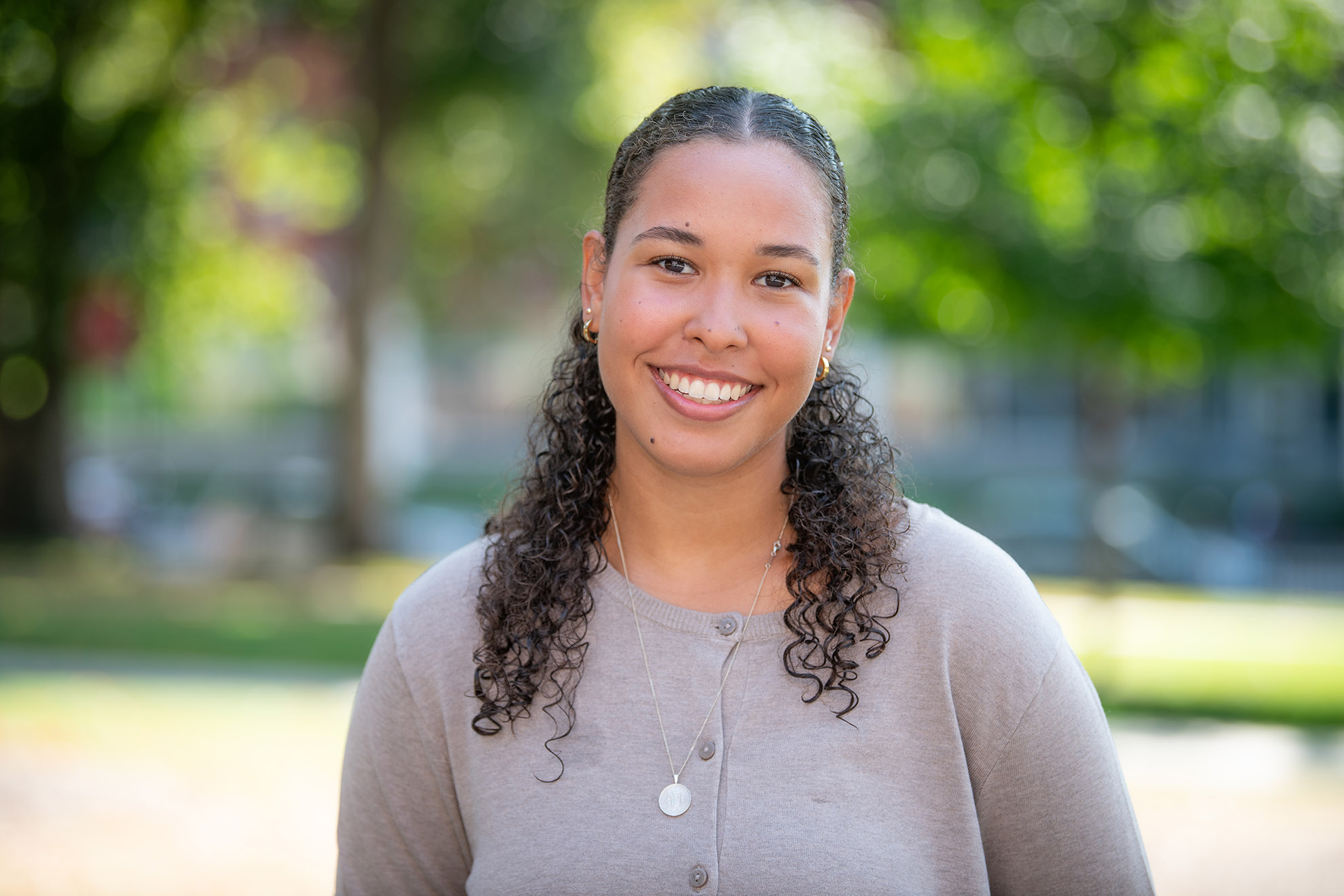Samuel Cooper ’24 studies how climate dollars are distributed in New England
Provost Sebastián Royo and Samuel Cooper ’24 share a laugh during ClarkFEST on Oct. 25.
“I exist across economics, physics, history, and environmental science.
This project has had to touch on all of that.”
After one of the most ambitious investments in climate and energy in U.S. history was signed into law, Samuel Cooper ’24 was curious how New England would benefit compared to the rest of the country.
The environmental science major assessed the implementation of the Inflation Reduction Act (IRA) for his honors research capstone. The IRA, signed by President Biden in 2022, is set to invest $370 billion in state, local, and private initiatives. The act is a 10-year plan that creates opportunities to hire workers, manufacture equipment, and lower household energy costs while reducing greenhouse gas emissions and improving livelihoods.
Cooper evaluated the IRA’s rollout in New England, particularly the magnitude and geographic distribution of projects funded. He began his three-part study by summarizing the massive document, which contains 134 provisions. Next, he analyzed which cities and towns in the six New England states received funding. From there, he examined specific case studies. The purpose was to determine which localities have benefited most (or have been better positioned to benefit) and suggest how to remove barriers to effectively implement the provisions within the IRA.
“If you’re a town of 2,000 people in rural Massachusetts, you may not know about IRA funding or have the capacity to benefit,” says Cooper. This is when it’s helpful to have an agency like the Central Massachusetts Regional Planning Commission, he says, noting that the CMRPC received a $1 million, four-year planning grant from the IRA to develop climate action plans for a coalition of 81 central Massachusetts and northeast Connecticut towns.

“Institutions like CMRPC exist to assist towns, particularly smaller towns, that don’t have the finances, staffing, or expertise to develop plans on their own,” says Cooper. “IRA funds can keep people on payroll to work on projects and put together public meetings.”
While municipalities and agencies applied for IRA grants, individuals could apply for tax credits for household items like heat pump systems. Cooper’s research, supported by geography Professor Christopher Williams, focused exclusively on grant-based proposals, representing roughly $154 billion, because data on tax credits was hard to access.
A major conclusion Cooper reached is that more transparent data is needed “because we don’t know where all the funding is going.”
Boston was among Cooper’s case studies. The city received roughly $11 million to address the urban heat island effect in the Chinatown, East Boston, Dorchester, Mattapan, and Roxbury neighborhoods, covering costs such as purchasing trees and paying laborers.
“This is a good example of the IRA being an enabling tool for cities, especially ones with fiscal challenges,” says Cooper.
He concluded that while the IRA is an unprecedented opportunity and should be celebrated, it is still not enough to meet U.S. climate targets and falls short by including some provisions with little relation to climate change. More emphasis on the clean energy transition, with attention to closing gaps around public transportation, is needed, he says.
Barriers such as administrative capacity and political indifference remain, Cooper says, adding that rural towns should lean on the support of regional planning agencies to benefit from the IRA.
“Ideally, when we look back eight years from now, all of the funding should be fairly evenly distributed or targeted toward communities that need it most through specialized provisions,” he says. “It’s still early in the process, so it’s useful to see who’s gotten funding first.”
Cooper received highest honors after defending his thesis at the end of April. His thesis and IRA summary were recently published online via the Clark Digital Commons as a resource for others conducting similar research.
“It’s putting a cap on my very interdisciplinary experience at Clark,” says Cooper, who complemented his major with a geography minor and urban studies concentration. “I exist across economics, physics, history, and environmental science. This project has had to touch on all of that.
“How do we reduce emissions? How do you understand how the climate system works? What are the best solutions? We talk about that in geography, in environmental science and policy, in economics, and in physics,” he continues. “All these questions intersect. Fundamentally, it’s about trying to get a better and breathable planet, trying to improve the economy, trying to improve people’s livelihoods, and, ultimately, some semblance of social justice. That’s what I’ve always cared about, and it’s why I came to Clark and why I did this project.”
Last summer, Cooper worked with geography Professor Mark Davidson to examine how cities are disclosing climate change-related risk when marketing their municipal bonds. He identified the ten U.S. cities most at risk for a range of disasters like flooding, drought, extreme heat, wildfires, and hurricanes, and then looked at how those cities disclose their risk level to bond investors. He’s also studied the fare-free Worcester Regional Transit Authority, putting the program in the context of urban philosophy.
“It should be a human right for all people, regardless of their backgrounds and economic ability, to be able to get around the city, particularly a city where it’s kind of hard to get around by foot,” he says. “It opens access to economic opportunities, jobs, and shopping. Being able to participate in the economy and the civic sphere is absolutely necessary.”
Outside the classroom, Cooper served as vice president of the Clark University Film Screening Society and explored a new hobby in the Karate Club. He joined with no martial arts experience and is now a fourth Kyu purple belt.
This summer he is attending an intensive two-week program for social justice and urban planning at the Technical University of Delft in the Netherlands.
Cooper is from South London and moved to suburban Los Angeles in 2016. Two years later, his family moved to St. Louis. He earned his U.S. citizenship last year.
“I remember visiting the Science Museum frequently as a child and seeing the very first steam engines, like Stephenson’s Rocket, which completely changed how people interacted and saw the world, and also emitted lots of greenhouse gases, which we now have to deal with,” Cooper recalls.
“It’s just as reasonable to say that the clean energy revolution has as much potential to change how the world functions. It’s very much up to us now.”





